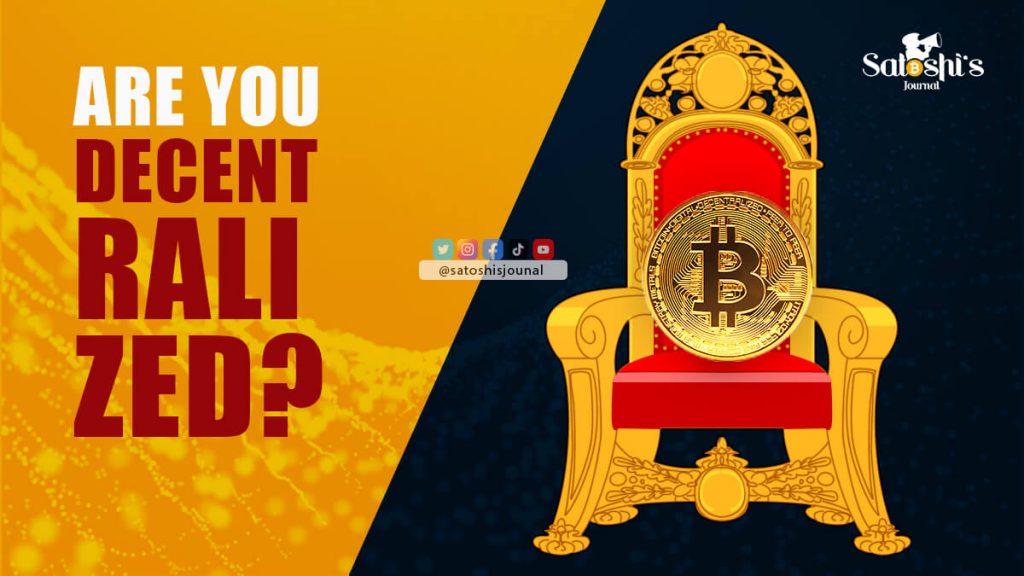Why Exactly am I Here?
Hash rate, difficulty adjustment, difficulty bomb, Proof-of-work, delegated proof-of-stake and the tangle. These are just a few ambiguous terms that are emerging from the spawn of the digital crypto asset era.
You’re here because somehow, somewhere, and someway you crossed paths with Bitcoin. For many of us in the space, it was because there was a hype cycle, we got FOMO, and had to find out for ourselves.
After the excitement died down, many people left for other distractions. A few of us remained, curious to learn and better understand Satoshi’s discovery, and its importance.
With all the catchphrases and new language, the most misused word is “decentralized”. From the outset we get hit with the notion that crypto is decentralized, a property which is unknown in traditional markets. In a decentralized world, there are no gatekeepers; you’re in control of your money.
Bitcoin is the discovery of decentralization. Its very purpose is that users are seeking the ability to buy, sell, and use the network wherever, whenever, and however they wish. All of this is done without permission or the ability to have your transactions censored.
In my opinion, the only reason to own Bitcoin is because it is decentralized. Decentralization enables the user to own their property in a permissionless, censorship resistant and immutable state.
Decentralization is a new property of money that compounds and adds strength to its other features. Crypto assets that call themselves blockchains are supposed to be social consensus networks, but decentralization is an emergent quality, not simply achieved the day a whitepaper gets released. There are a number of metrics that analysts can look for to measure an asset’s decentralization. I will mention a few of the important ones for Bitcoin. There are almost 19,000 other crypto assets listed on coinmarketcap.com, as I write this, and it is not in the scope of this article to look at each, but rather to understand what makes Bitcoin decentralized and how you can compare its architecture to everything else:
- The number of full nodes. This is a critical measure for Bitcoin, the role of nodes is to validate new blocks, host and synchronise the timechain.
- Hash power and it’s distribution around the world.
- The number of developers and the various jurisdictions they live in; and
- Lastly, for my short list, but most important for me personally, is a crypto asset’s founding team. The question about Satoshi’s disappearance is a feature. There is no individual or team that can be brought to testify in Congress, a Parliamentary House, or any court in any country that could possibly speak on behalf of, or answer for Bitcoin and all of us.
You can’t discuss Bitcoin being hard money without understanding its decentralization, which plays a critical role at the social consensus layer. Bitcoin is hard money because we know that there will never be more than 21 million bitcoin ever, and that the protocol requires a very high consensus to make changes to the rule set. This is integrally written into the code itself, and is very difficult to change, which is by design.
For further reading on how updates and changes are made to the Bitcoin protocol, I would suggest picking up and reading Mastering Bitcoin by Andreas Antanopoulos, as well as The Blocksize Wars by Jonathan More.


